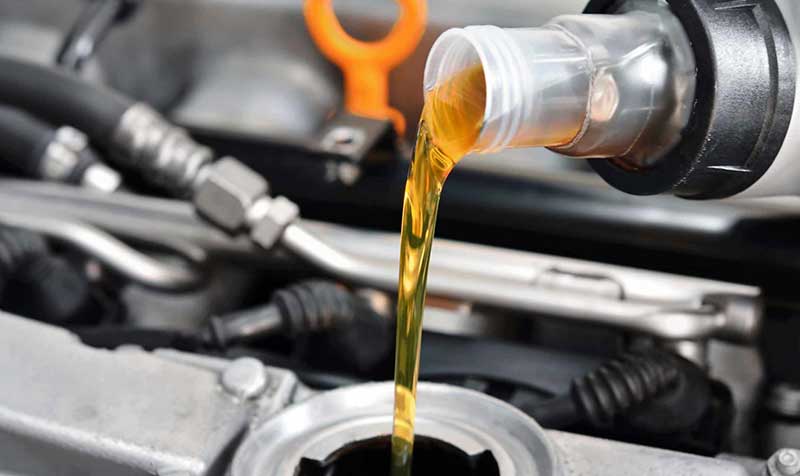
If your car was manufactured after the mid-1970s, it almost certainly comes with a catalytic converter. This exhaust system component, which is responsible for taking combustion gasses from your engine and turning them into less dangerous emissions, has been required on every new car sold in the U.S. since 1975.
But like any other auto part, catalytic converters can run into trouble — and poorly handled oil changes can contribute to these issues. Read on for a thorough explanation of how oil change service can help (or harm) your catalytic converter and how to find an auto shop you can count on to handle this vital task.
How Oil Changes Help Catalytic Converters
As every Hays County, Texas driver knows, oil changes aren’t something you can afford to ignore. By making oil changes a priority in your auto maintenance schedule, you’ll be able to:
- Keep your engine clean. Fresh oil does an excellent job of trapping and neutralizing contaminants in your vehicle’s engine.
- Maximize heat management. Your engine will always generate heat while it runs, but motor oil can help keep this heat under control and move it away from sensitive areas.
- Thoroughly lubricate moving parts. Clean oil is great at reducing friction between engine parts.
- Reduce your risk of internal rust. If your motor oil is sufficiently high quality, there’s a good chance it will contain additives designed to keep rust from forming in your engine.
As you might expect, oil changes can also have a positive impact on your vehicle’s catalytic converter. When knowledgeable professionals handle your full-service oil change, this component will be able to run as efficiently as possible. That will reduce your engine’s RPMs and improve your car’s emissions and gas mileage.
Oil Change Risks To Watch Out For
Though oil changes are usually helpful for catalytic converters, that isn’t always true. The key to a successful oil change is using a reasonable amount of high-quality oil. If your auto shop doesn’t follow these guidelines, you could find yourself dealing with catalytic converter damage.
For example, let’s say your shop’s mechanics use too much oil while providing oil change service. In that case, this fluid could make contact with your car’s crankshaft. The crankshaft will mix your motor oil with air, making it “foamy” and reducing its ability to lubricate engine parts and flow through your vehicle. When this happens, your engine components could end up failing — and so could your catalytic converter.
When Do You Need Oil Change Service?
To maximize the benefits associated with oil changes, you’ll want to know exactly when your vehicle needs this type of work. Though waiting too long between one oil change and the next is never a great idea, taking care of this service too early means you won’t get as much as possible out of your current oil.
Because of that, you’ll need a reliable oil change schedule. Though you’ll want to start by checking your car’s manual, you can expect conventional oil to last for about 3,000 miles. Meanwhile, synthetic blend oil can last up to 5,000 miles, and full synthetic oil can last 5,000-7,000 miles.
These are only rough estimates, so you might need an oil change service more often than this implies. You may benefit from a shorter oil change interval if you frequently drive in heavy traffic, tow heavy loads, or deal with intense temperatures.
Find the Right Oil Type for Your Car
Another factor you’ll need to consider before your next oil change is the type of oil your vehicle should use. Some of the most widely used oil types on the market today include:
Conventional Oil
Conventional oil is an incredibly popular type of motor oil, primarily due to its low price. However, this product isn’t the best choice for most drivers as it doesn’t offer the top-notch performance and long lifespan associated with other oil types.
Full Synthetic Oil
Unlike conventional oil, full synthetic oil is a completely artificial type of oil, and this product’s demanding manufacturing process results in unmatched engine protection. Even though a synthetic oil change costs more than a conventional oil change, this oil’s extended service life can still help you save in the long run.
Synthetic Blend Oil
If you’re on the fence between full synthetic oil and conventional oil, why not combine the two? That’s the idea behind synthetic blend oil, a literal mixture of the two oil types described above that serves as a mid-range option between the two extremes.
Get the Best Oil Change in Hays County, TX
When you pay attention to your oil schedule and type, you’ll go a long way toward getting truly high-quality oil change service. But to fully protect your catalytic converter, you’ll need to make sure your next oil change is handled by a trustworthy local auto shop.
At Reliable Automotive, our full synthetic oil changes don’t stop at the bare minimum. Instead, we offer full-service oil changes that come with other helpful maintenance services. Additionally, every job we complete is handled by ASE-certified mechanics — the most knowledgeable, skilled people any auto shop can employ.
Taking all that into account, Reliable Automotive is the clear choice for your next oil change in Hays County, TX. Don’t wait any longer — schedule your oil change online ASAP!






